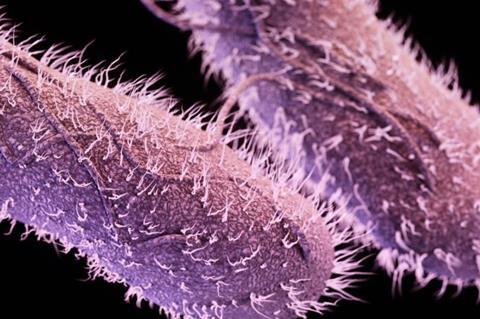Researchers at the University of Colorado Anschutz Medical Campus have discovered a mechanism by which a bacterial virus undermines the virulence of Salmonella, allowing the host a chance to rehabilitate.

In a study published in Science, researchers identify a new way by which a bacterial virus limits the capacity of Salmonella to cause infection. The terminase protein within the bacterial Gifsy-1 prophage, or virus, is normally involved in genomic processing of viral DNA. However, upon oxidative stress the terminase acquires the ability to break down transfer RNA (tRNA), ultimately compromising protein synthesis in Salmonella, a common cause of diarrhea in humans.
“We have discovered that a virus encoded in the Salmonella genome acts as the Achille’s heel of this common human pathogen,” says Andres Vazquez-Torres, PhD, professor of immunology and microbiology at the University of Colorado School of Medicine.
“This basic research can possibly provide a basis for exploring ways to treat Salmonella infections in humans,” says Vazquez-Torres. “This new understanding can be exploited for our advantage – for example, we could benefit from the toxin produced by an endogenous virus to potentially treat patients with Salmonella infections that are resistant to antibiotics.”







No comments yet